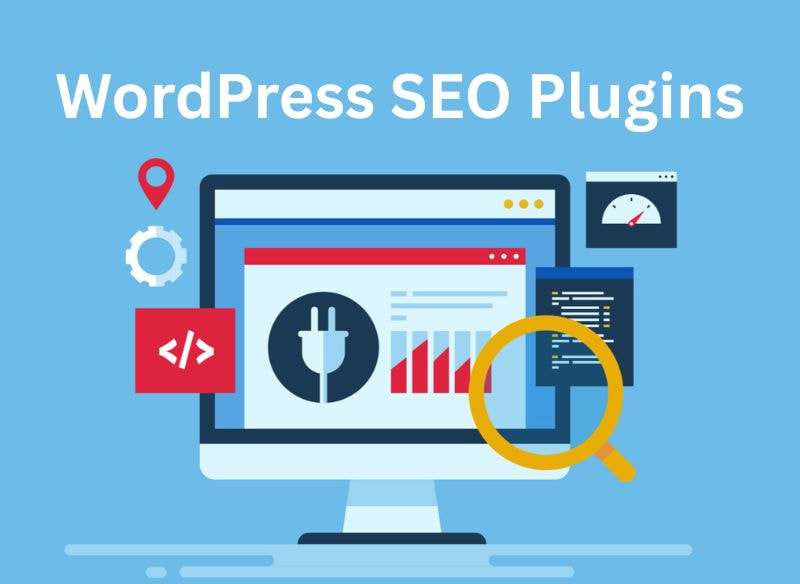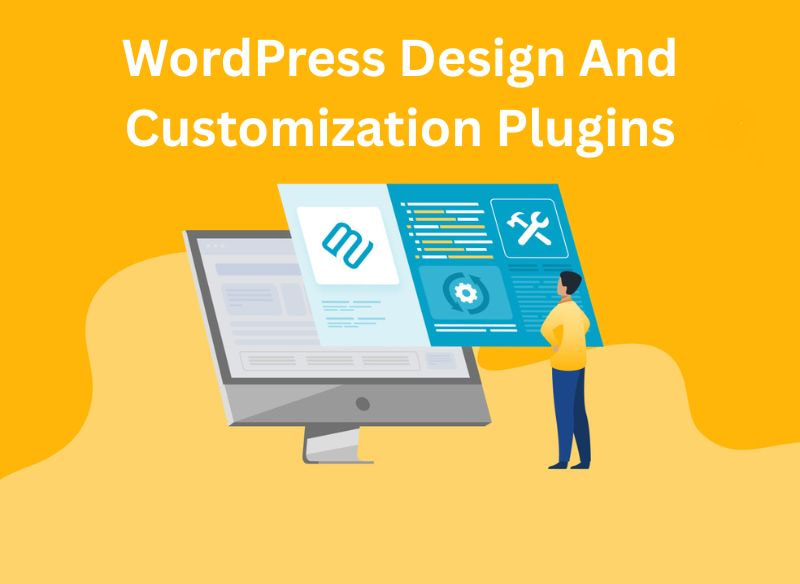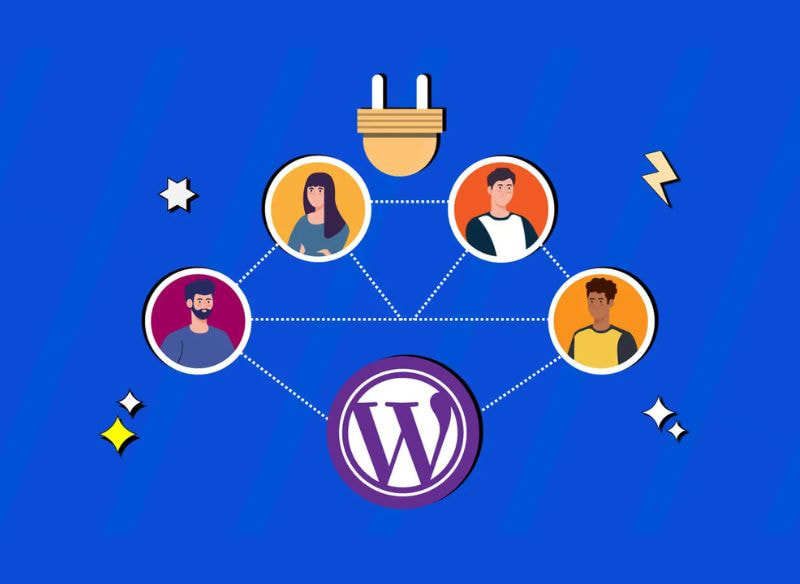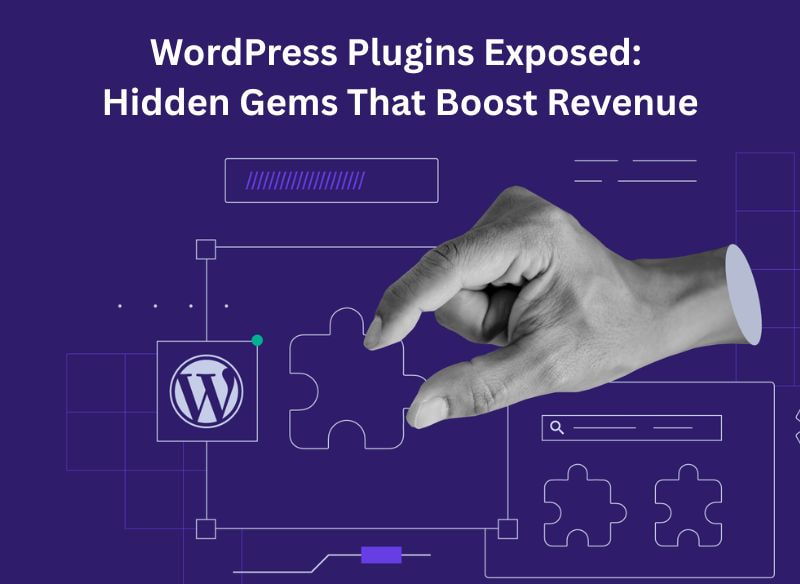No products in the cart.
WordPress Plugins Exposed: Hidden Gems That Boost Revenue
WordPress powers 43.4% of all websites globally, yet many website owners struggle to navigate the overwhelming selection of over 70,000 available plugins. Unlike other content management systems, WordPress is the only major CMS with a completely free, open-source plugin repository that offers unlimited functionality expansion without licensing restrictions. This comprehensive guide will help you select the right WordPress plugins for your specific needs, whether you’re running a small business website, managing an ecommerce store, or developing client projects professionally.
I. What Are WordPress Plugins And Why They Matter
1. Understanding WordPress Plugin Architecture
WordPress plugins are software add-ons that extend the core functionality of WordPress websites without requiring modifications to the core system files. The plugin architecture was introduced in WordPress version 1.2 “Mingus” in 2004, featuring a unique hook system that allows developers to modify core functionality seamlessly. This innovative approach means WordPress plugins can be activated and deactivated without requiring code changes or server restarts, making WordPress customization accessible to users of all technical levels.
All WordPress plugins follow GPL licensing, ensuring they remain free and open-source forever. This licensing model creates an ecosystem where premium WordPress plugins must also maintain open-source compatibility, benefiting the entire WordPress community while encouraging innovation and collaboration among developers worldwide.
2. The WordPress Plugin Ecosystem By Numbers
The WordPress plugin repository processes over 1.5 billion plugin downloads annually, with the most downloaded plugin being Jetpack, which boasts over 5 million active installations. The plugin ecosystem is valued at $1.32 billion in 2023 and is projected to reach $1.56 billion by 2031, with the premium plugin market generating an estimated $200+ million annually through various marketplaces.

The WordPress Plugin Ecosystem by Numbers
These WordPress extensions, also known as WordPress add-ons or WP plugins, represent the largest plugin ecosystem of any CMS, offering more functionality than Drupal, Joomla, and Shopify combined. The WordPress.org directory maintains this vast collection through an entirely volunteer-driven review process managed by the WordPress community.
3. Benefits For Different User Types
Small business owners benefit from cost-effective WordPress plugins for small business operations, accessing enterprise-level functionality without expensive custom development. Developers appreciate the extensibility and WordPress customization options that allow for complex integrations and custom solutions. Personal bloggers find free WordPress plugins for personal blog enhancement, while digital marketers leverage WordPress plugins for lead generation and conversion optimization to grow business with WordPress plugins effectively.
II. Essential WordPress Plugin Categories for Business Success
1. WordPress E-commerce Plugins
WooCommerce dominates the WordPress ecommerce landscape, powering millions of online stores worldwide. These WooCommerce plugins extend basic functionality to include advanced inventory management, subscription services, and payment gateway integrations. Essential ecommerce WordPress add-ons include payment processors, shipping calculators, and inventory management systems that transform basic WordPress sites into powerful selling platforms.
Popular WooCommerce extensions include WooCommerce Subscriptions for recurring payments, WooCommerce Bookings for appointment-based services, and various payment gateway plugins that support global commerce. For service businesses, WordPress plugins for appointment booking small business operations streamline customer scheduling and reduce administrative overhead.
2. WordPress SEO Plugins
The best WordPress SEO plugins include industry leaders like Yoast SEO, which provides comprehensive on-page optimization tools, technical SEO recommendations, and content analysis features. These WordPress tools help improve search engine rankings through schema markup, XML sitemap generation, and meta tag optimization.

WordPress SEO Plugins
Alternative SEO solutions like AIOSEO and RankMath offer similar functionality with different user interfaces and feature sets. Local businesses particularly benefit from SEO plugins that optimize Google My Business listings and local search visibility, making them essential WordPress plugins for small business website 2024 success.
3. WordPress Security Plugins
WordPress security plugins protect websites from malware, brute force attacks, and security vulnerabilities. Wordfence leads the security category with real-time threat detection, firewall protection, and malware scanning capabilities. These WordPress security solutions monitor suspicious activity, block malicious traffic, and provide detailed security reports.
Other notable security WordPress modules include Sucuri Security, iThemes Security, and All In One WP Security, each offering unique approaches to website protection. Regular security monitoring becomes crucial as WordPress plugin security vulnerabilities can compromise entire websites if left unaddressed.
III. Performance and User Experience Plugins
1. WordPress Performance And Speed Plugins
WP Rocket dominates the caching plugin market, offering user-friendly performance optimization without technical complexity. These speed optimization WordPress tools reduce page load times through caching, image optimization, and code minification. Alternative solutions include W3 Total Cache and WP Super Cache, which provide similar functionality with different configuration approaches.
Performance plugins help fix WordPress issues with plugins that may cause slowdowns, ensuring optimal user experience across all devices. Image optimization plugins like Smush and ShortPixel automatically compress images to improve loading speeds without sacrificing visual quality.
2. WordPress Design And Customization Plugins
Elementor revolutionized WordPress page building with its drag-and-drop interface, allowing users to create professional designs without coding knowledge. These WordPress landing page builder plugins enable rapid website development and customization, making professional design accessible to non-developers.

WordPress Design and Customization Plugins
Divi Builder offers similar functionality with a different approach, while Gutenberg blocks extend the native WordPress editor with additional design elements. These WordPress enhancement tools provide the flexibility needed for unique website designs and user experiences.
3. WordPress Product Filter And Search Plugins
Advanced search functionality improves user experience by helping visitors find relevant content quickly. Product filtering plugins become essential for ecommerce sites with large inventories, allowing customers to narrow down product selections by price, category, attributes, and other criteria.
Search plugins like SearchWP and Ajax Search Lite enhance the default WordPress search functionality, providing more accurate results and better user experience. These WordPress functionality extensions help reduce bounce rates and improve conversion rates through better site navigation.
IV. Content Management and Engagement Solutions
1. WordPress Content Management Plugins
Editorial workflow plugins streamline content creation processes for teams, providing editorial calendars, content approval workflows, and collaboration tools. PublishPress Editorial Calendar and Edit Flow help manage complex publishing schedules and maintain content quality standards.
Media library management plugins organize uploaded files, provide advanced filtering options, and help maintain clean, organized media libraries. These WordPress modules become essential for sites with large amounts of visual content and multiple content creators.
2. WordPress Customer Engagement Plugins
Live chat plugins like LiveChat and Tidio provide real-time customer support capabilities, improving customer satisfaction and conversion rates. These WordPress plugins to increase website conversions enable businesses to address customer questions immediately, reducing cart abandonment and improving sales.

WordPress Customer Engagement Plugins
WordPress comment plugins for engagement enhance visitor interaction through improved comment systems, social login options, and comment moderation tools. These features encourage community building and repeat visits, essential for building loyal audiences.
3. WordPress Multilingual Plugins
WPML and Polylang lead the multilingual plugin market, enabling websites to serve content in multiple languages. These plugins manage translations, maintain SEO optimization across languages, and provide seamless language switching for international audiences.
Translation management workflows become crucial for businesses targeting global markets, requiring careful coordination between translators, content managers, and SEO specialists to maintain quality across all language versions.
V. Marketing And Analytics Plugin Suite
1. WordPress Analytics And Reporting Plugins
MonsterInsights simplifies Google Analytics integration, providing detailed website analytics within the WordPress dashboard. These WordPress analytics plugins for marketers offer insights into visitor behavior, traffic sources, and conversion patterns without requiring technical analytics knowledge.
Heatmap plugins like Hotjar and Crazy Egg provide visual representations of user behavior, showing where visitors click, scroll, and spend time on pages. These WordPress tools help optimize page layouts and improve user experience based on actual visitor behavior.
2. WordPress Email Marketing Plugins
WordPress newsletter plugins for bloggers integrate with popular email marketing services like Mailchimp, Constant Contact, and ConvertKit. These plugins enable sophisticated email automation workflows, subscriber segmentation, and detailed campaign analytics.

WordPress Email Marketing Plugins
Lead generation forms created through WPForms, Contact Form 7, and Gravity Forms capture visitor information and integrate with CRM systems. These email marketing WordPress plugins integration tools help build subscriber lists and nurture leads through automated sequences.
3. WordPress Ad Management Plugins
Ad management plugins optimize advertisement placement and revenue tracking for publishers. Advanced Ads and WP QUADS provide sophisticated ad placement options, A/B testing capabilities, and detailed revenue reporting.
These WordPress marketing plugins help publishers maximize advertising revenue while maintaining good user experience through strategic ad placement and frequency capping options.
VI. Security And Maintenance Essentials
1. WordPress Anti-Spam Plugins
Akismet leads the spam protection category, automatically filtering spam comments and contact form submissions. These plugins protect websites from comment spam, registration spam, and other automated attacks that can compromise website quality and performance.
Anti-spam protection becomes particularly important for sites with active comment sections or contact forms, where spam can overwhelm legitimate communications and create security risks.
2. WordPress Backup And Restore Plugins

WordPress Backup and Restore Plugins
UpdraftPlus provides comprehensive WordPress backup plugins functionality, automatically creating scheduled backups and storing them in cloud services like Google Drive, Dropbox, and Amazon S3. Regular backups protect against data loss from security breaches, plugin conflicts, or server failures.
Backup plugins should include one-click restore procedures, allowing quick recovery from website issues. Premium backup solutions often include migration tools and staging site capabilities for safe testing of changes.
VII. Advanced Functionality Plugins
1. WordPress Automation And AI Plugins
Artificial intelligence integration represents the future of WordPress plugin development, with AI-powered content generation, image optimization, and user experience personalization becoming increasingly common. These WordPress tools help automate repetitive tasks and improve website performance through machine learning algorithms.
Automation plugins streamline workflows, reduce manual tasks, and improve efficiency for website administrators and content creators. These advanced WordPress functionality extensions help businesses scale their operations without proportional increases in management overhead.
2. WordPress Membership And Community Plugins

WordPress Membership and Community Plugins
MemberPress and Restrict Content Pro enable subscription-based business models, providing membership site creation, content restriction, and payment processing capabilities. These plugins transform WordPress sites into comprehensive membership platforms with user role management and access control features.
Community building plugins foster user engagement through forums, user profiles, and social features that encourage return visits and user-generated content creation.
VIII. Plugin Selection And Implementation Best Practices
1. How To Choose The Right Plugins For Your Needs
Successful plugin selection requires evaluating factors including plugin compatibility, update frequency, user reviews, and developer reputation. Check plugin ratings and read recent reviews to understand real-world performance and potential issues before installation.
Consider the plugin’s impact on website performance, as poorly coded plugins can significantly slow down sites. Test new plugins on staging sites before deploying to production environments to avoid unexpected issues.
2. Plugin Installation And Management Tips
Install plugins through the WordPress.org directory whenever possible, as these undergo security reviews and maintain GPL licensing compatibility. Avoid nulled or pirated premium plugins, which often contain malware and lack security updates.

Plugin Installation And Management Tips
Maintain an organized approach to plugin management by regularly reviewing installed plugins, removing unnecessary ones, and keeping all plugins updated to the latest versions for security and performance optimization.
3. WordPress Plugin Security Best Practices
Before installing any plugin, research the developer’s reputation, read plugin reviews, and check the last update date. Plugins that haven’t been updated recently may contain security vulnerabilities or compatibility issues with current WordPress versions.
Implement plugin license key management for premium plugins to ensure continued updates and support. Regular security scans help identify potential WordPress plugin security vulnerabilities before they can be exploited by attackers.
IX. Frequently Asked Questions
How many WordPress plugins should I install on my website?
Install only the plugins you actually need, typically 15-25 for most business websites. Focus on quality over quantity, choosing well-coded, regularly updated plugins from reputable developers.
Are free WordPress plugins safe to use for business websites?
Free plugins from the WordPress.org repository undergo security reviews and are generally safe. However, always research plugin developers, read reviews, and test plugins before implementing them on production sites.
What’s the difference between WordPress.org and premium plugins?
WordPress.org plugins are free and open-source, while premium plugins offer additional features, priority support, and advanced functionality. Both must maintain GPL licensing compatibility.
How do I know if a WordPress plugin is slowing down my website?
Use plugin performance monitoring tools to identify slow plugins. Deactivate plugins individually to test performance impact, or use staging sites to test plugin combinations safely.
Can WordPress plugins conflict with each other and break my site?
Yes, plugin conflicts can occur when multiple plugins modify the same functionality. Always maintain current backups and test plugin combinations on staging sites before deploying changes.
X. Conclusion
The WordPress plugin ecosystem offers unparalleled functionality expansion opportunities through its 70,000+ available plugins and $1.32 billion market value. WordPress’s unique position as the only major CMS with a completely free, open-source plugin repository provides unlimited customization potential for businesses of all sizes. By understanding plugin categories, selection criteria, and implementation best practices, you can transform your WordPress site into a powerful business tool that grows with your needs.
For professional WordPress development and plugin integration services, consider partnering with Temply Studio to maximize your website’s potential with expertly selected and configured plugins that deliver measurable business results.









Add comment